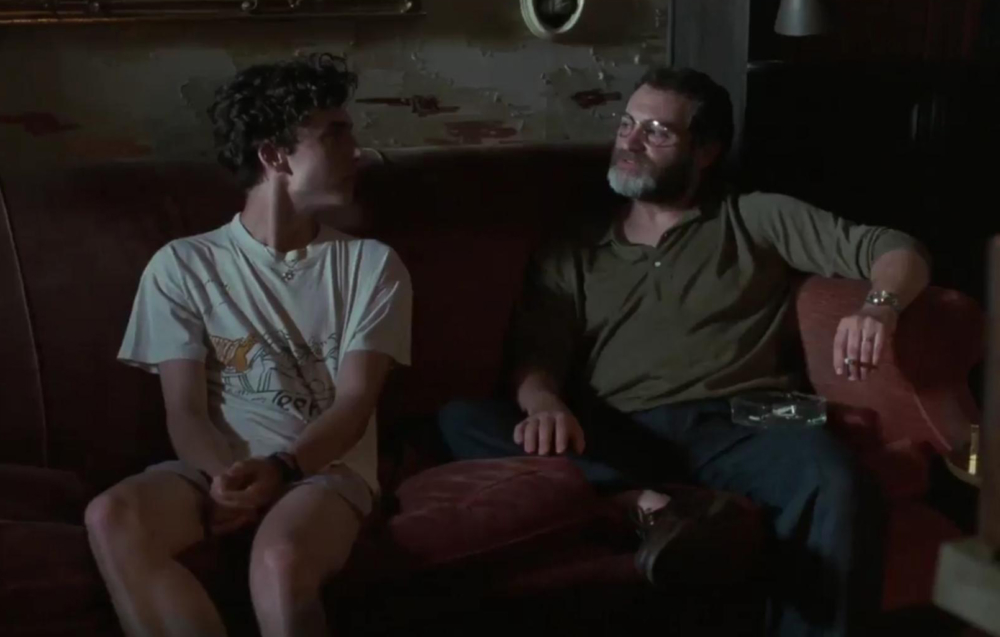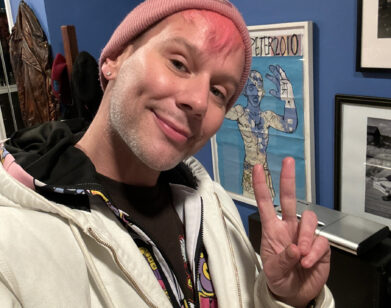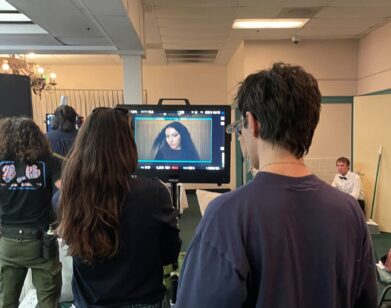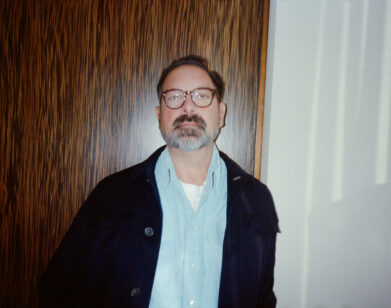The untold story of Michael Stuhlbarg’semotional Call Me By Your Name speech

“Look,” he interrupted. “You had a beautiful friendship. Maybe more than a friendship. And I envy you. In my place, most parents would hope the whole thing goes away, or pray that their sons land on their feet soon enough. But I am not such a parent. In your place, if there is pain, nurse it, and if there is a flame, don’t snuff it out, don’t be brutal with it. Withdrawal can be a terrible thing when it keeps us awake at night, and watching others forget us sooner than we’d want to be forgotten is no better. We rip out so much of ourselves to be cured of things faster than we should that we go bankrupt by the age of 30 and have less to offer each time we start with someone new. But to feel nothing so as not to feel anything—what a waste!”
This is the speech that actor Michael Stuhlbarg delivers in the final third of Luca Guadagnino’s Call Me By Your Name. It had audiences reaching for a defibrillator, reeling from Stuhlbarg’s measured tip-toe of a delivery. It’s the part that—if you had somehow resisted tears in the first two-thirds of the film—definitely left your face wet. His character, Professor Perlman, is sat on a faded plush couch, talking to his son, Elio (Timothée Chalamet). Elio is in emotional purgatory, his summer fling Oliver having abandoned him, leaving him heartbroken and distraught. Perlman, the ideal dad, says the words that anyone who is heartbroken, or gay, or questioning—literally anybody—deserves to hear.
In the aftermath of Call Me By Your Name’s cinematic release, “the speech” was second only to the peach scene as the most discussed takeaway from this incredible film. The words were mainlined from the pages of André Aciman’s novel, from which the film was adapted. We’ve overheard this speech discussed in stores around New York City—like Outdoor Voices on the Upper East Side (actually)—which means that it has rung true for those who have seen the film. It’s one of the highest autocompletes on Google when searching the movie. It’s the most important and heartfelt and raw speech in a movie, if not this decade, then certainly this year. But maybe Stuhlbarg knew that all along…
MIICHAEL STUHLBARG: I was warned about the speech! My agent called and said, “There’s a very beautiful thing to say at the end of this screenplay, but read the whole thing.” And it had affected me as it seemed to effect her.
In some ways, it’s hard to remember what my first reaction was. I just knew it was an extraordinary opportunity. My first thought was trying to absorb who this man was that said all of these things, where he came from, what his past life was, what his passions were, what his love was, what kind of father he was, where it was coming from. I took my time, but certainly if you’re given something like that to say, you think, “How am I going to do this?!”
We shot the film in chronological order, which is really rare. So I had a lot of time to get to know Tim, Amira [Casar], Luca and the whole cast. I let the experience live in me so that by the time I was going to shoot it—which was the very last thing I shot—we had all been through wonderful experiences together. I just felt on the day this absolute need to be there in as intimate a way with Timothée [Chalamet] as I could be.
That room, where we shot it—the room had been there forever. This space felt like a very safe cocoon for us to be as honest with each other as we could be. So it was as much a character in the film as both Tim and I were.
At the very beginning of the process, Luca invited us to his home in Crema, which is approximately two kilometers from where we shot the film. Sitting around his dining room table we read through the entire script, all of us, just to touch on everything once. I hadn’t spoken those words out loud to anybody else in over a month, if not longer. On the day, we talked through it briefly for camera movement. Luca said he wanted to do it from two different angles. Then once we did that for the camera, we did two takes of it: one that had more outward emotion, then one that was a bit more direct. It was Luca’s decision to go with the more direct version of it.
I don’t know how else to describe [the version that got cut] other than I allowed myself to feel and express outwardly more of what Professor Perlman might have been going through. Oftentimes, I’ve learned over the course of years, it can be helpful to allow the audience their own experience of watching something, so if you are emoting [too much], it may prevent them from going through something. This way people can be invited in and let their own experiences go along for the ride of what it is you have to say. I think Luca was absolutely right to use the take he chose.
It’s also one of those things that you live with on your own in private when you’re working on it. You say it a million different ways to yourself. On the day, both Tim and I were ready to express those sentiments to each other because of all that we had lived through in the making of the film up until that point. It really just came down to us being ready.
There was a scene in the film that’s not in the [final version of the] film. There’s an exchange between Oliver, Professor Perlman, and Elio where Professor Perlman alludes to a life he had lived before and the travails that he had experienced in his own life. Oliver responds by saying that he could have never imagined him having any travails in his life from the spirit that he shared with Oliver over the course of the story. And he says that everybody goes through these things—Dante did, some other scholars—and he mentions there are roads that we just don’t take in our lives.
Some people take the roads they’re frightened by and some people never choose to go down the roads that are presented to them. There are often a lot of opportunities in front of us in our lives that we chose for some reason or another not to take. It alluded to some life experiences that he had been through, whether it was unrequited love or whether it was something intense that he felt as a younger person that he wasn’t brave enough to embrace. So he says to Elio, “I envy you.” Given another opportunity, [Perlman would have] loved to have seen where one of those other roads would have led him. We all have regrets and we all made choices in our lives. I guess I have my own experiences, which I could allude back to and it resonated for me.
It’s very possible [that Professor Perlman was gay]. I saw him as a very passionate, loving, generous spirit. So he very likely could be, that may have been the thing that he was alluding to. I’m not sure.
It was easy to open myself up to Tim; he was so present and so spontaneous and giving and loving that it made my task easy. He and Armie [Hammer] are both very special people and so it was easy to connect with them in a very deep way, and in the shoes of Professor Perlman, say the things I was given to say.
[The response to the speech has] been very humbling. Often people have said that they wish that they had had an opportunity like this to hear some of the things Professor Perlman shares with his son from their own parents. It seems to have struck people in a very private and profound place in regards to their own upbringings. They wish that these words had been said to them. They are important words for all of us to hear. We’re lucky if we feel something really very strongly in our lives and that as profoundly and as deeply one might feel something, it’s important to allow yourself to feel it because oftentimes we push things away, and maybe we would learn something if we allowed ourselves to feel things as deeply as we can, as painful as that might be.
CALL ME BY YOUR NAME IS OUT IN THEATERS NOW.






